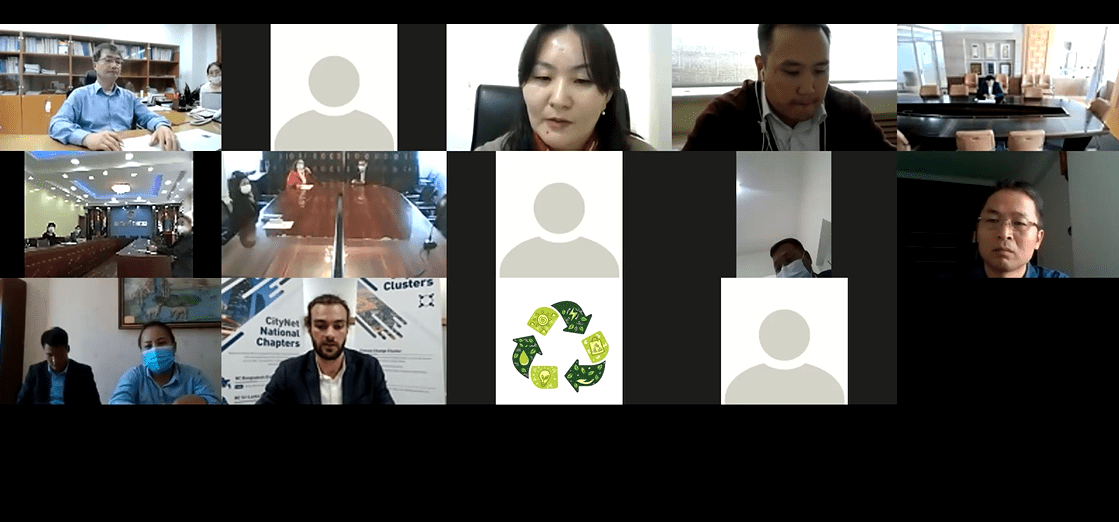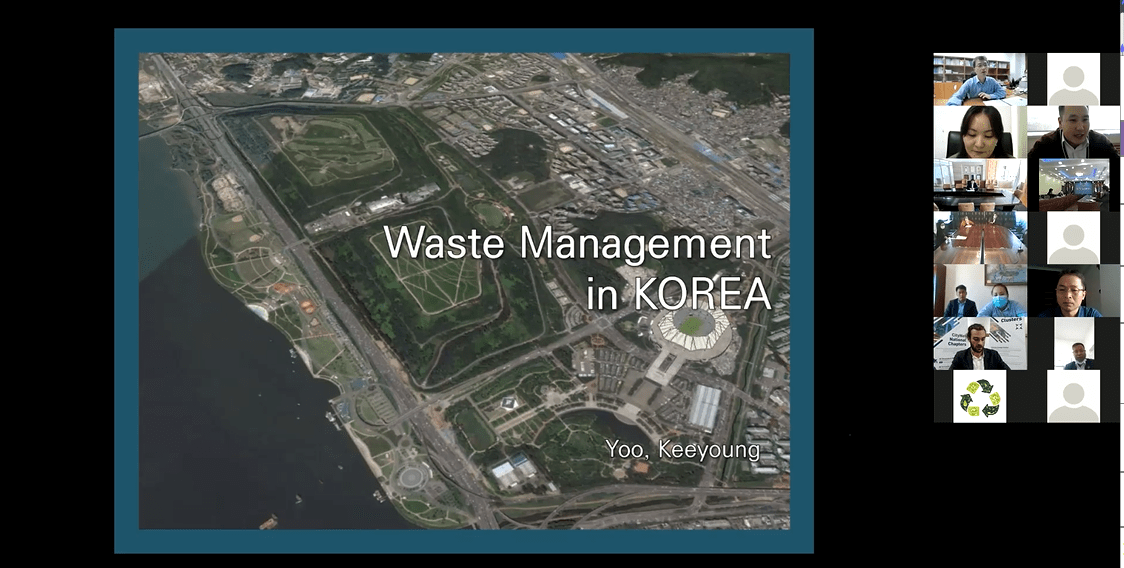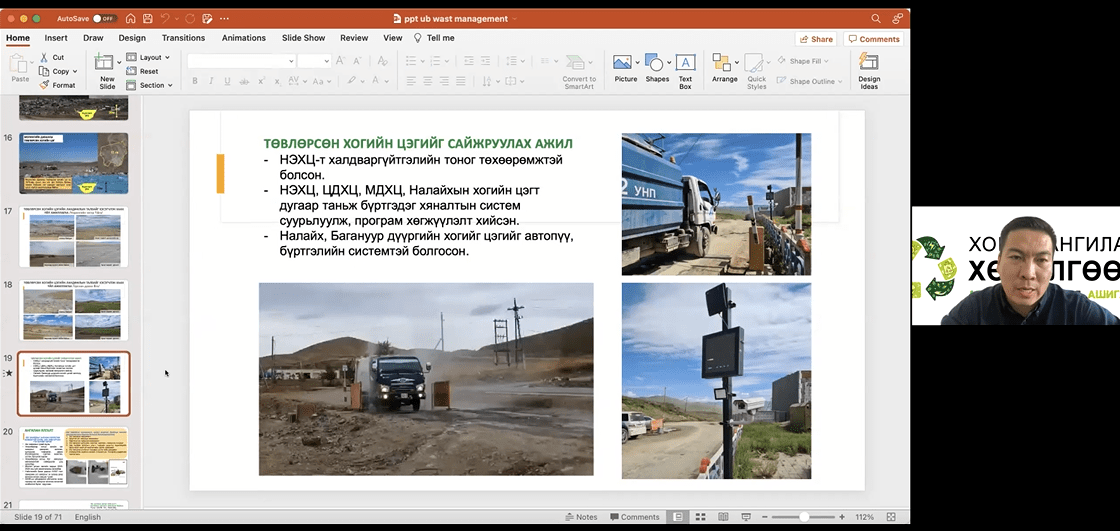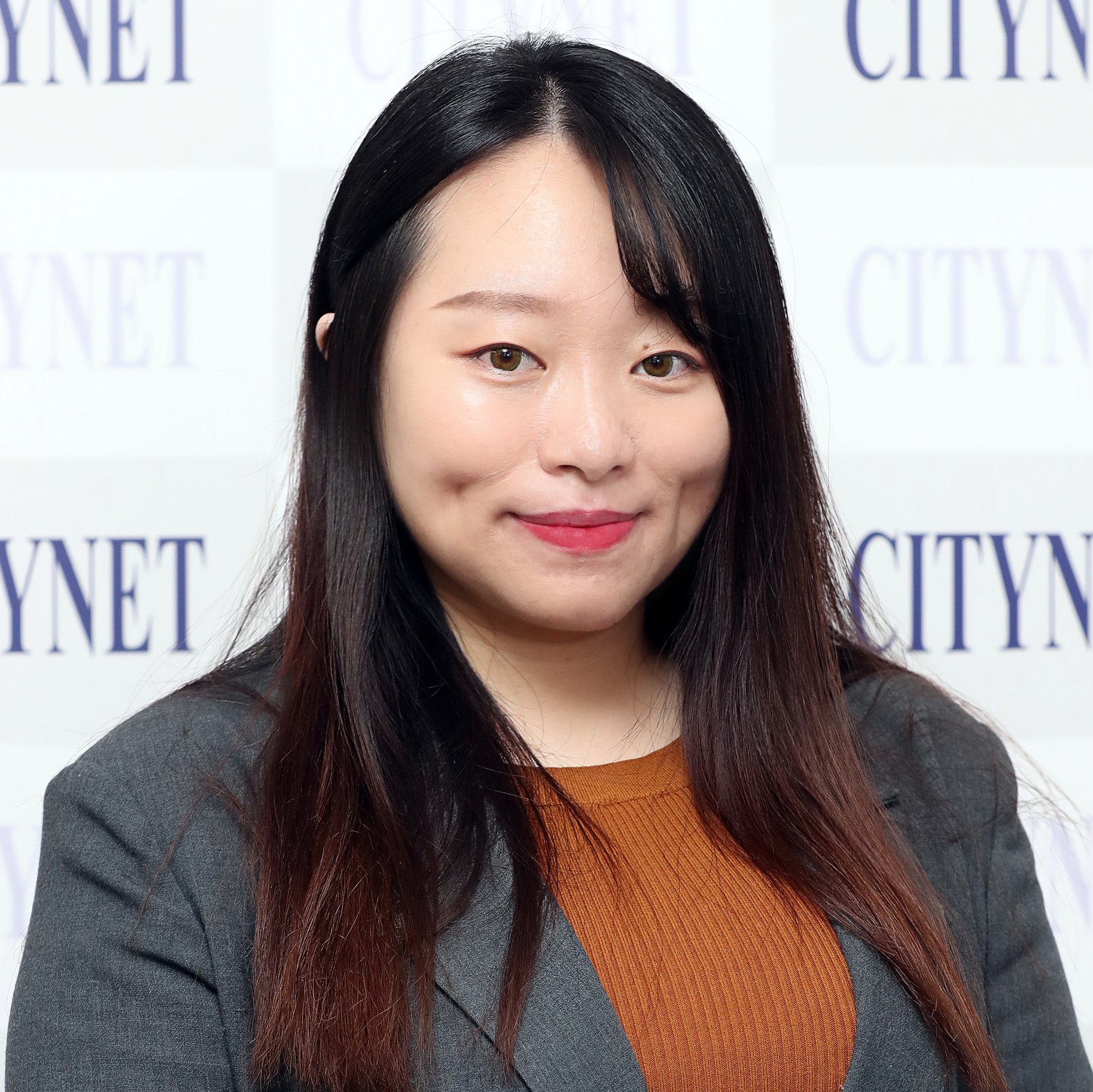
CityNet Secretariat and Healthy City Network Mongolia jointly held the “Localization of good practices and evaluation of city waste management policies & Projects with the Healthy City Network Mongolia (HCNM) for Mongolian cities during 29-30 September 2021.
According to research from the World Bank, 2019, daily waste generated per person in Mongolia amounts to 2.6kg, resulting in three times the world average. With the rapid change in lifestyle, the current day waste is most likely comprised of non-biodegradable components. In regards to the gravity of the situation, CityNet and Healthy City Network of Mongolia invited international and domestic experts from Mongolia to introduce the best practices on solid waste management to 41 local government officials coming from 9 different Mongolian cities.
On the first day of the program, the webinar began with the opening remarks from CityNet’s CEO, Mr. Geun Hyeong Yim, addressing how waste management is an urban issue where developing and developed cities commonly struggle. The workshop served as the platform for domestic and international urban stakeholders to discuss effective actions to improve local waste management policies.

The following speaker, an international expert, was Mr. Kee-Young Yoo, Deputy Director of the Seoul Institute from Seoul City, who shared the policies and actions from Seoul City. He also introduced the Up-Cycle Plaza, Seoul’s latest infrastructure for Solid Waste Management, built to encourage the concept of Up-cycle (Reuse + Design) activities to the citizens by offering workshops.
Mr. Zhi-Long Ye, Research Fellow from Chinese Academy of Sciences shared Xiamen’s experience in smart monitoring platforms for the sorting, collection and treatment of waste with the utilization of an IoT system.
Dr. Tserendulam Shagdarsuren, the Director of Healthy City Network Mongolia, introduced the Toolkit for Localization of Urban Practices developed by CityNet Secretariat under the Urban SDG Knowledge Platform to the participants in Mongolian.

On the second day of the program, domestic expert Mr. A. Nyamdorj, the Head of the Institute of Health and Social Policy NGO from Ulaanbaatar City introduced the waste sorting system of Ulaanbaatar City, as well as the restoration project for a former landfill site. Ulaanbaatar City is also actively holding workshops and promoting volunteering to educate citizens on waste sorting.
Ms. D. Khandjargal, the General Engineer of Public Utility Service Department from Darkhan City presented about the master plan on Solid Waste Management and projects that the city initiated after detailed assessment of the current waste treatment system.
With the knowledge sharing from both international and domestic best practices on Solid waste management, the participants of the webinar were invited to use the Toolkit on Localization of Urban Practices to measure the replicability of best practices on waste management that were shared during the program.
The workshop was wrapped up with comments and feedback from participants, who shared their Toolkit results and questions regarding Solid Waste Management.
This workshop is the first workshop of CityNet’s National Workshop Series for its members. The second workshop will take place on 4-5 November for Indonesian government officials on the topic of inclusive resilience and DRM.

Hui Qian is a Senior Program Officer at CityNet, where she manages outreach and CityNet Services. Prior to joining CityNet, she worked at ICLEI East Asia Secretariat, with a focus on city-scale research and projects. Hui has a background of Sustainability Science and Greenhouse Gas Emissions Inventory Compilation. She obtained a Master of Science in International Cooperation Policy from Ritsumeikan Asia Pacific University (Japan) and a Master of Engineering in International Material Flow Management from Hochschule Trier (Germany). She is experienced in working under multicultural environment with multidisciplinary cooperation.

